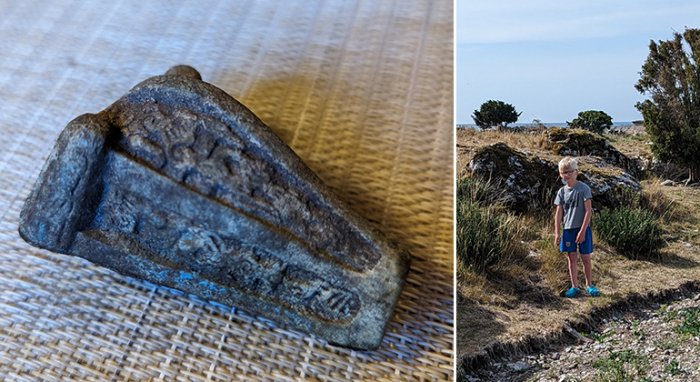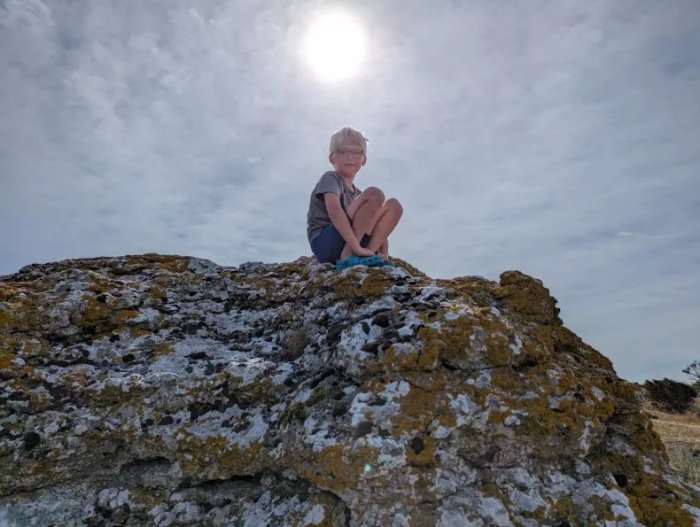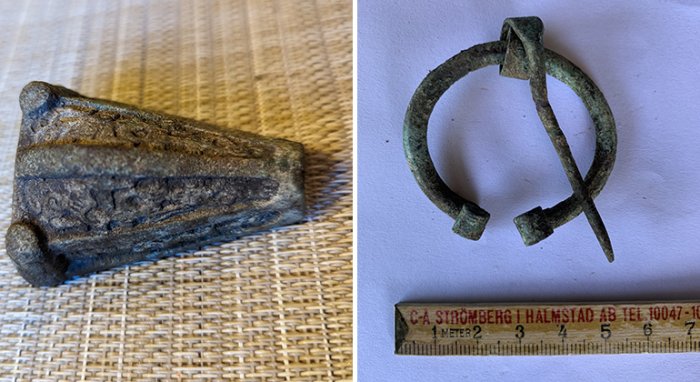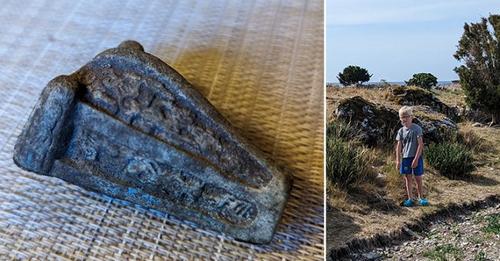8-Year-Old Boy Finds Unusual Viking Age Artifact On Gotland Island, Sweden
Anyone, regardless of age, place, and nation, can always find something of archaeological value. You have to keep your eyes open; before you know it, you are looking at something hundreds or thousands of years old on the ground. Finding an ancient treasure or an artifact is a remarkable and unforgettable experience.

An eight-year-old boy has made a remarkable discovery. While on vacation in Sweden with his family, Bruno Tillema was walking along a beach on Gotland Island. The youngster who had just been given a book about fossils was scanning the ground to see if he could see any, but fate wanted him to find something else instead.
Suddenly, Bruno noticed an object that had a dark brown color and triangular shape. It looked intricately carved and piqued his interest. Bruno picked up the object and kept walking until his mother asked him what he was holding in his hand.
“Walking the path, I just picked it up off the ground and thought, what is this? Maybe some weird part from a house? I went looking for fossils. Then mother came and asked what I had in my hand. So, I said, some strange metal thing,” Bruno said.
It turned out that this little “strange metal thing” was a genuine Viking Age artifact. Archaeologists have examined the object Bruno found, and scientists say it is a Bronze buckle dating back to A.D. 800 to 1100. The dress buckle is carved into the shape of an animal’s head and is intricately decorated.
Upon learning about this discovery, experts from Gotland’s museum conducted an archaeological investigation at the find site to find out if more objects were nearby. During the investigation, another suit buckle was found, this time a so-called ring buckle.
The family contacted the county administration, who quickly went out and looked at the find site.
“The family handled the find in an exemplary manner. They contacted us immediately so that we could quickly do an initial check on the spot,” says Therese Lindström, cultural environment manager at the County Administrative Board in Gotland County.

According to Lindström, both buckles are made of bronze and belong to costumes from the late Iron Age or early Viking Age. Buckles designed as animal heads are usually associated with Gotland women’s graves, while ring buckles are found in both men’s and women’s graves, says Therese Lindström.
The grave itself has probably been disrupted on an earlier occasion. It is not uncommon for objects from damaged graves to resurface in connection with plowing the land.

Both buckles are to be sent for preservation, and their ultimate fate will be determined by the National Antiquities Authority in Sweden, the County Administrative Board in Gotland County informed in a press release.
Bruno is proud of his discovery, and with good reason! The boy is happy he can tell people what he has found and is now even thinking of becoming an archaeologist when he grows up.
“I’m happy I can tell everyone what I found. It feels as if I have made something big and can now finally share it with all,” Bruno says.
Time will tell whether Bruno will one day become an archaeologist, but we do wish him luck and hope he will make many more exciting finds he can share with everyone across the globe.
